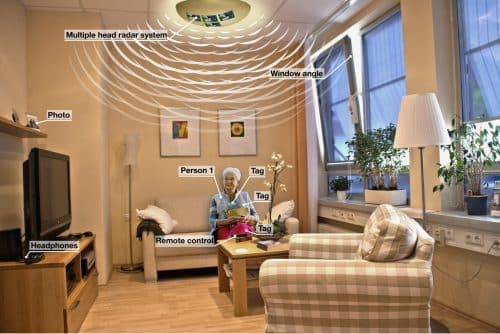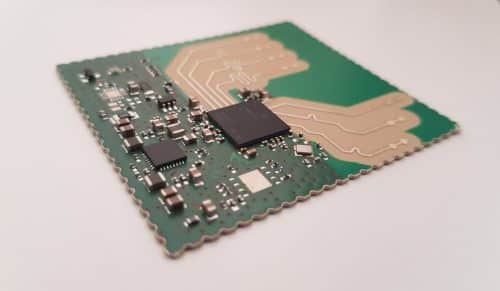The new technology uses Radio beams and passive tags for networking indoor objects and people.
Researchers from Fraunhofer along with other partners have worked on a new way for networking objects in indoor areas. Using Radio beams and passive tags, they effectively detected the position of objects and people as well. This technology finds its applications in the safety and care sector, mainly to avoid the dangers of people or children falling.
Radar beams are widely used in the defence sector for tracking objects for a long time now, however, in recent years, scientists have been trying to scale up the use of radar beams for indoor applications. The Fraunhofer Institute for Reliability and Micro integration IZM in Berlin is focusing on a promising project in this area.

In the project called: OmniConnect project, radar is used to detect the motion and position of objects inside rooms. The system used is called the secondary radar that combines radar beams with tags that are attached to objects. These passive tags not only reveal the system position and movements inside a room, but they can also transmit information about the object as well.
The system operates at a high frequency of 60 GHz band, in which a higher degree of integration can be achieved. Each of the transmitting and receiving modules is just 25 square centimetres in size and no separate power supply is needed for the passive tags. According to scientists, the radiation this technology emits is completely harmless to human beings. The system developed, is claimed by the team to be an ideal solution for networking any objects or integrating them into a home network. The passive tags can be unobtrusively integrated into everyday objects such as items of clothing. Radar modules on the ceiling detect the position and the movement of the tags.
The Use Case
According to the researchers at Fraunhofer IZM, the project aims to provide support for people who are prone to falling, suffer from dementia or are in need of care for other reasons. The flexible tags, measuring just 5 cm x 1 cm, can be sewn into fabric without a problem. If the person appears to linger or seem lost in a certain place for too long, the carer equipped with the system would be able to check whether all is well. “The position of a tag, meaning the position of the person, can be located to within ten centimetres,” explains Christian Tschoban, Project Manager at IZM. “The system could then raise the alarm, prompting the carers to check whether the person has fallen”







